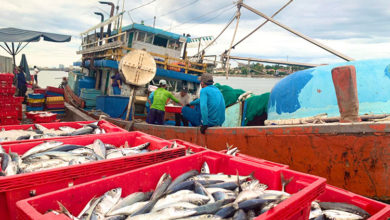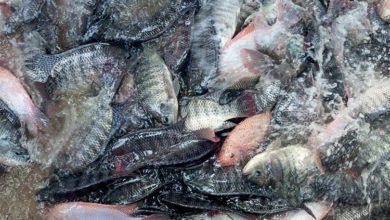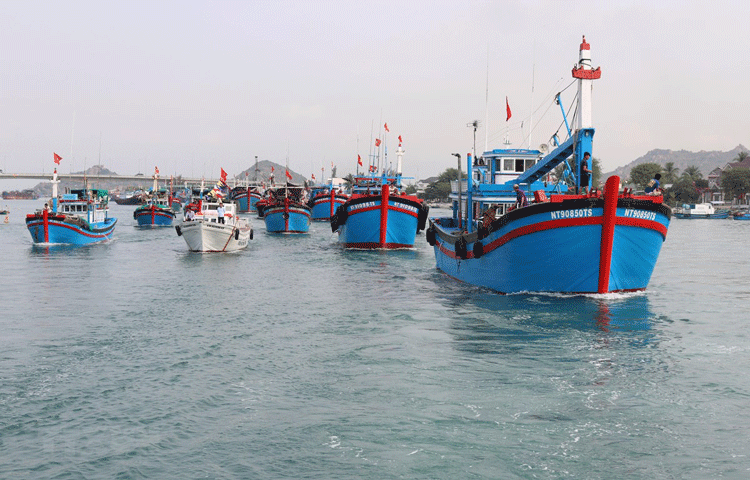Responsibly use animal drugs for sustainable shrimp culture
According to the Department of Animal Health (under the Ministry of Agriculture and Rural Development), over 23.4 thousand hectares of shrimp farms were damaged in 2022, up 15.5% from 2021. The hardest-hit farms were intensive and semi-intensive models with 8,5000 ha.
The country has seen over 1.6 thousand hectares of shrimp farms be damaged since earlier this year, with a total of 688 ha being infected. Disease outbreaks occurred in some places in the Mekong Delta such as: Cà Mau, Bạc Liêu, Trà Vinh, and Sóc Trăng. So as to get to the bottom of this matter, Bùi Thị Huỳnh Hoa, Director of Viet Duc Science Co., Ltd shared tips to prevent and wipe out disease outbreaks.
Ms Hoa said that unfavorable weather conditions resulted in a large outbreak and farmers could be left empty-handed if they didn’t know how to prevent the disease in the first place. In Ms Hoa’s opinion, farmers should follow biosafety criteria to prevent diseases in shrimp farms. Farmers should prevent disease outbreaks in the first place.
Ms Hoa advises that farmers should comply with biosafety instructions and use probiotics. She gives prominence to being friendly to the environment. Firstly, prevention must be paid attention to in shrimp culture, such as using probiotics to restrain harmful bacteria in shrimp ponds.
Secondly, unnecessary organic nutrients should be removed from grow-out ponds.
Thirdly, farmers should build an environment platform for the growth of useful algae and creatures, and remove toxic gas from grow-out ponds so as to create a suitable environment for shrimp to grow up.
Shrimp must be carried out closely with water environment protection. Thus, the water environment must be protected and suitable platforms must be built for the growth of useful algae.
Waste must be removed from ponds when shrimp are in the molt. Shrimp feces and left-over must be handled promptly to protect shrimp ponds.
Hoa said that aquatic drugs are classified in many types. Antibiotics are not really bad, but farmers must learn how to use proper and reasonable doses for each species.
When it comes to trading of antibiotics prohibited in aquaculture, farmers still use untraceable antibiotics, which badly impact credible businesses in the fisheries industry.
The Fisheries Law 2017 stipulated responsibilities, rights, and obligations of farmers. Thus, every single farmer must mount an effort to develop the fisheries sustainably.
VFM






